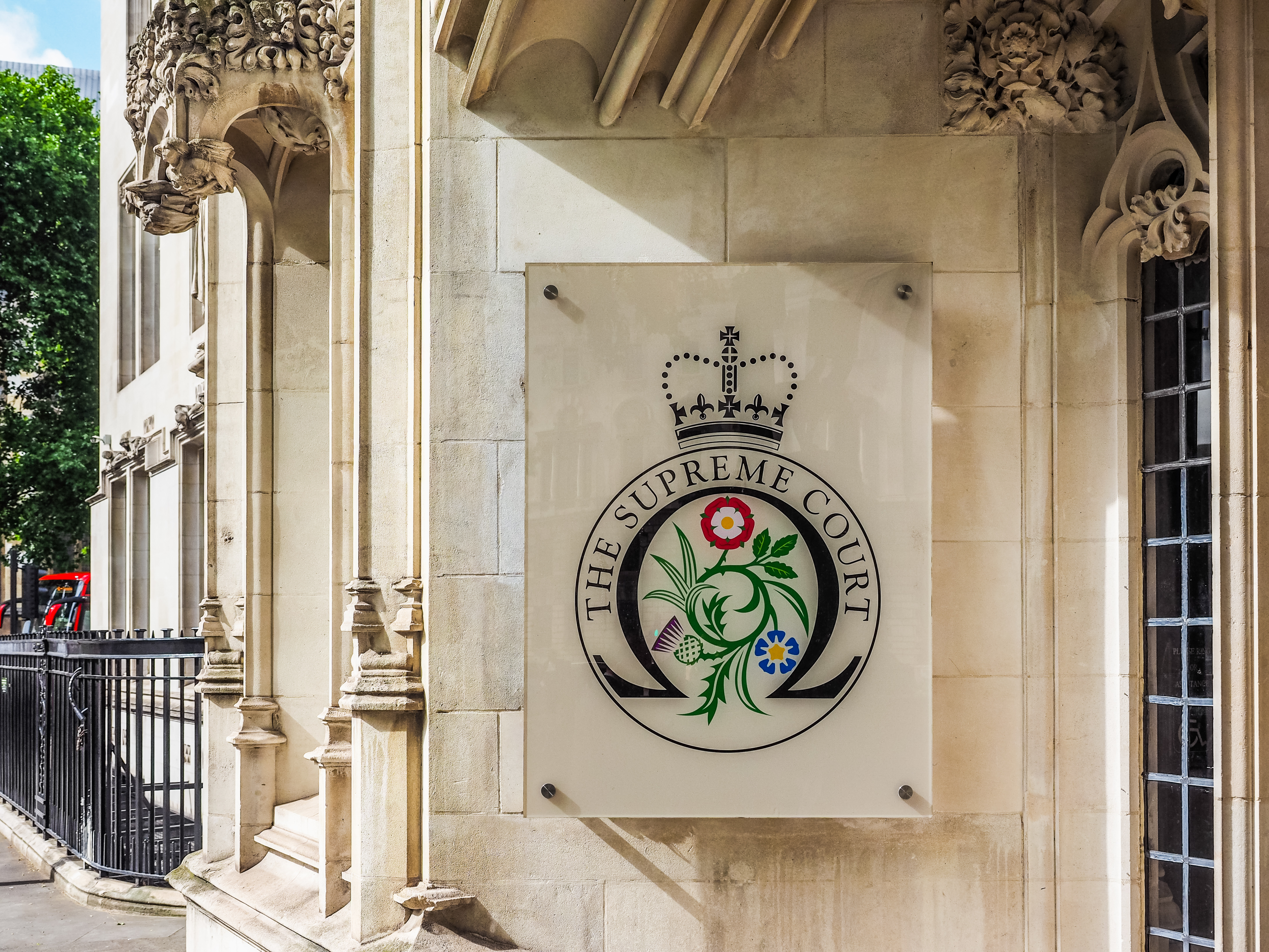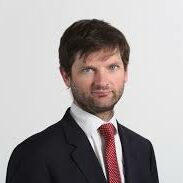“The UK Supreme Court decision may embolden inventors to bring more applications for compensation, given the clarification of what constitutes ‘outstanding benefit,’ particularly in the context of large, diverse businesses.”
 A professor is entitled to a payment of £2 million (about $2.5 million) from his former employer due to the “outstanding benefit” from his invention, the UK Supreme Court has ruled. The judgment was handed down on October 23, eight months after the Court heard the case and some 37 years after the invention was conceived. (Shanks v. Unilever Plc and others [2019] UKSC 45.)
A professor is entitled to a payment of £2 million (about $2.5 million) from his former employer due to the “outstanding benefit” from his invention, the UK Supreme Court has ruled. The judgment was handed down on October 23, eight months after the Court heard the case and some 37 years after the invention was conceived. (Shanks v. Unilever Plc and others [2019] UKSC 45.)
Article 40: Outstanding Benefit
The case mainly concerned Article 40 of the (old) 1977 UK Patents Act, which governed patents applied for before 2005. This provides that an employee may be awarded compensation of an amount to be determined by a court where a patent “is (having regard among other things to the size and nature of the employer’s undertaking) of outstanding benefit to the employer.”
Professor Shanks was employed by Unilever Central Resources Ltd (CRL), a subsidiary company of Unilever plc, from 1982 to 1986. During this time, he invented two blood sugar testing devices known as the Electrochemical Capillary Fill Device and Fluorescent Capillary Fill Device. As his employer, CRL assigned the rights to the inventions to Unilever plc, which filed patent applications.
Unilever did not exploit the Shanks patents itself but did grant seven licenses to other entities that made diabetes tests, before eventually selling the patents to Inverness Medical Innovations, Inc. It was estimated that Unilever’s total earnings from the licenses and sale were about £24.55 million (about $31.4 million). Allowing for the costs of prosecuting, maintaining and licensing the patents, its net benefit was about £24 million (about $30.7 million).
In 2006 Professor Shanks made an application for compensation, on the basis that the benefit provided to his employer by the patents was outstanding. That application was rejected by the UK IPO hearing officer, a decision that was upheld at the High Court and Court of Appeal. However, the Supreme Court has now allowed his appeal, and found that he is entitled to compensation of £2 million.
What is “Outstanding”?
Writing the judgment on behalf of five Supreme Court judges, IP specialist Lord Kitchin said “outstanding” is “both a relative and qualitative term” and must be considered in context: “Put another way, in relation to what must the benefit from the patent be outstanding? Which factors may be taken into account in making that assessment?”
The reference in the Act to the “employer’s undertaking” posed a difficulty in this case, as it raised the question whether the relevant undertaking is CRL or Unilever. The judge said the answer is “to look at the commercial reality of the situation …from the perspective of the inventor’s employer.”
Therefore, whether there was “outstanding benefit” involved three key questions: who is the employer (in this case was it CRL or the bigger Unilever group?), what was the size of the benefit and was it outstanding?
Kitchin concluded that the hearing officer had erred in considering these points in several respects. First, he should have considered the size and nature of CRL’s undertaking (namely, generating inventions and providing them to Unilever) in assessing the nature of the benefit of the patents. Secondly, he should not have focused on the overall turnover and profits generated by Unilever’s business. Thirdly, the size and success of Unilever’s business played no material part in securing the benefit it enjoyed from the Shanks patents. And finally, the was no justification for weighing the sums generated from the Shanks patents against the size of its turnover and overall profitability.
Therefore, said Kitchin, the benefit Unilever enjoyed form the Shanks patents was outstanding:
“It is true that Unilever patented and maintained a patent portfolio which protected it and in due course expended significant effort and skill in the licensing negotiations. But the rewards it enjoyed were substantial and significant, were generated at no significant risk, reflected a very high rate of return, and stood out in comparison with the benefit Unilever derived from other patents. What was more, they could not be attributed to the deployment or application of Unilever’s wider business assets or infrastructure; nor were they found to be the consequence of any leverage Unilever could exert because of its size.”
He further found that the appropriate fair share of the benefit for Professor Shanks was 5% of the £24 million profit. This was increased by taking account the effect of inflation since 1999, making a total of £2 million.
Impact on Inventors and Businesses
Cases over outstanding benefit in the UK are rare, and the amounts involved relatively small. But this decision by the Supreme Court may embolden inventors to bring more applications for compensation, given the clarification of what constitutes “outstanding benefit,” particularly in the context of large, diverse businesses. Any multinational companies with current or historic R&D facilities in the UK should consider the implications of the Shanks case carefully.
Arguments Heard in Unwired Planet FRAND case
The UK Supreme Court also has been hearing arguments concerning the licensing and enforcement of standard essential patents (SEPs) this week. (Unwired Planet International Ltd and another v. Huawei Technologies (UK) Co Ltd and another, UKSC 2018/0214; Huawei Technologies Co Ltd and another v. Conversant Wireless Licensing SARL, UKSC 2019/0041; and ZTE Corporation and another v. Conversant Wireless Licensing SARL, UKSC 2019/0042.)
These cases were combined, as they all address the question whether it is appropriate for an English court to enforce FRAND terms by reference to a global portfolio of SEPs. In his first instance decision in the Unwired Planet case, Mr. Justice Birss found that it was. (Unwired Planet International Ltd v. Huawei Technologies Co. Ltd & Anor [2017] EWHC 711 (Pat).) This finding was upheld on appeal. Similar issues concerning jurisdiction were raised in the proceedings between Conversant and Huawei/ZTE.
The specific questions before the Supreme Court are:
- Does the English court have the power or jurisdiction, or is it a proper exercise of any such power or jurisdiction without the parties’ agreement:
-
- to grant an injunction restraining infringement of a UK SEP unless the defendant enters into a global license under a multinational patent portfolio;
- to determine the rates/terms for such a license; and
- to declare that such rates/terms are FRAND?
- If the answer to (i) is “yes”, is England the proper forum for such a claim in the circumstances of the Conversant proceedings?
- What is the meaning and effect of the non-discrimination component of the FRAND undertaking and does it mean that materially the same license terms as offered to Samsung must be offered to Huawei in the circumstances of the Unwired case?
- Does the CJEU’s decision in Huawei v ZTE mean that a SEP owner is entitled to seek an injunction restraining infringement of those SEPs in circumstances such as those of the Unwired case?
The hearing lasted four days and the video recording can be viewed here. A judgment is expected early next year. There were five judges on the panel, and Lord Kitchin did not take part as he wrote the Court of Appeal judgment in the Unwired Planet case.
Image Source: Deposit Photos
Photography ID: 166034586
Copyright: claudiodivizia

![[IPWatchdog Logo]](https://ipwatchdog.com/wp-content/themes/IPWatchdog%20-%202023/assets/images/temp/logo-small@2x.png)

![[[Advertisement]]](https://ipwatchdog.com/wp-content/uploads/2024/04/Patent-Litigation-Masters-2024-banner-early-bird-ends-Apr-21-last-chance-938x313-1.jpeg)
![[Advertisement]](https://ipwatchdog.com/wp-content/uploads/2024/04/Patent-Litigation-Masters-2024-sidebar-early-bird-ends-Apr-21-last-chance-700x500-1.jpg)

![[Advertisement]](https://ipwatchdog.com/wp-content/uploads/2021/12/WEBINAR-336-x-280-px.png)
![[Advertisement]](https://ipwatchdog.com/wp-content/uploads/2021/12/2021-Patent-Practice-on-Demand-recorded-Feb-2021-336-x-280.jpg)
![[Advertisement]](https://ipwatchdog.com/wp-content/uploads/2021/12/Ad-4-The-Invent-Patent-System™.png)







Join the Discussion
4 comments so far.
Lost In Norway
October 31, 2019 05:27 amI have to agree with Paul. As a person practicing in Europe, this sometimes just seems like crazy talk. A researcher/engineer is paid to perform research and invent. Then if the invention actually makes “significant” money, then suddenly the money that was offered in the first place simply not enough.
Sounds like an “inventor lottery” to me. An engineer was paid to do their job, not strike it rich. If they want to make good money from their invention, then they need start their own company or have it in their contract.
But the law is the law, even if I find it confounding
Paul Cole
October 30, 2019 10:09 amCompanies carrying out research in the UK should be aware of a SERIOUS RISK.
If they are VERY UNFORTUNATE one or more staff members may make inventions of outstanding benefit and profitability. If that happens, following the Shanks case, there is a RISK that a small share of the benefit might be claimed by the staff members concerned. The only way to avoid this risk is to engage research staff of below average ability only, and ensure so far as possible that they never develop any bright ideas.
Paul Cole
October 29, 2019 06:52 pmThere was an alternative path that a kindly and generous employer might have adopted in response to Professor Shanks’ claim.
They could have booked the Royal Society at Carlton House Terrace for a seminar in honour of Professor Shanks and the outstanding contribution he had made to blood testing.
They could have invited him to give a paper on his invention, and invited contributions from licensees to explain how the invention had been put into effect, from medical practitioners explaining the benefits for patients and from charities supporting those suffering from diabetes.
The seminar could have been followed by a dinner at which an agreed and substantial cheque would have been handed to Professor Shanks. The press could have been invited to the event and in particular to photograph the moment when the cheque was handed over. Maximum publicity could have been encouraged both for the seminar and for the award.
That reaction would undoubtedly have motivated and increased the morale of research staff. Unilever would have been seen as a caring company and a good employer. Its reputation with the general public would have been enhanced. Ironically, a less expensive settlement might have been negotiated and much costly and wasteful litigation might have been avoided.
Dale Carnegie wrote a book on influencing people that contains much sound advice.
Disenfranchised Patent Owner
October 29, 2019 12:32 pmHell will freeze over before a similar verdict is rendered in the United States.